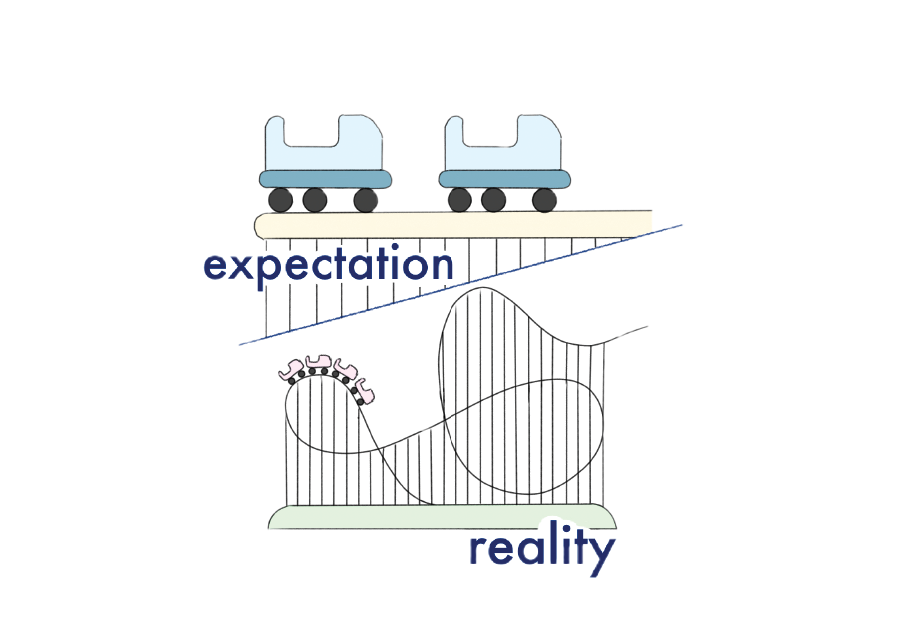In 2010 Instagram entered the app store. Two years later, the percentage of Americans who own a smartphone increased to more than 50 percent, according to the Pew Center’s data. Immediately, the release of this app and the iPhone itself began to change the way we fill our time, interact with others and perceive the world. It also could be changing how happy we are, psychologist Jean Twenge says.
Twenge, professor of psychology at San Diego State University and author of six books, visited Hockaday on Oct. 29 to discuss her latest book, iGen.
In both her presentation at Hockaday and her latest book, Twenge drew uncanny parallels between the use of iPhones and social media and the steep drop in preteen and teen happiness that began around 2010-2012. Around this time, more and more teens began to report experiencing common symptoms of depression and feeling less satisfied and less happy. Twenge explained this connection with the simple fact that time spent on a phone is time that could be otherwise filled. She noted that surveys show exercising, completing schoolwork and interacting with friends increase feelings of happiness and fulfillment, whereas time on the Internet reduces them.
Twenge did recognize it is impossible to say the iPhone and social media alone caused this decline in happiness, and I agree. An infinite number of variables affect our individual lives and our community at any given time, all of which could have contributed to this decline. Overall I think she needed to address more of these other factors in her presentation.
On the other hand, I also agree there is enough evidence to say screen time has a negative effect on mental health and happiness. iPhones emit blue light, which suppresses melatonin and disrupts our circadian rhythm. A disrupted circadian rhythm causes a lack of sleep. Harvard Health writes that lack of sleep or problems with sleeping can increase the risks for developing particular mental illnesses.
iPhones and social media also open up teens to the possibility of cyberbullying. Cyberbullying can increase insecurity and unhappiness in those affected for obvious reasons. Social media also allows people to falsely portray their lives through sites such as Instagram and Facebook. The more time teens spend on social media, the more likely they are to be fooled by these cropped “perfect” images of people’s lives.
Most people post photos online that show only the most exciting, pretty parts of their lives. We do not post the unflattering photos or show the unpleasant and difficult parts of our lives on social media. This gives the impression that it is normal to have a life filled with only expensive vacations and flawless skin, which is simply untrue. By posting perfected, edited photos, we lead others to believe they are alone in having imperfections or facing struggles
As Twenge suggested, spending our time looking at these perfected images of people’s lives can make us feel alone in having imperfections. This can lead to teenagers on social media feeling unhappy and alone.
Nevertheless, technology can be useful and positive as well, which frankly Twenge didn’t spend enough time on. Technology allows us to connect. With just one call or text message, we can talk to people living in different cities and even different countries. Social media sites such as Facebook and Instagram also allow us to connect with people outside the span of even our own calling and data plans.
Having the ability to talk to friends and family outside of our geographical location and maintain those relationships can decrease loneliness and boost our happiness. In this way, technology can help improve our mental states and health.
With all of the focus placed on technology today, we are becoming more knowledgeable and aware of how to safely use technology. Twenge is correct in saying that reducing screen time is one of the surest ways to ameliorate the negative effects of technology, but we are learning ways to have positive experiences with technology that should be taken advantage of, not reduced.
With time, both the current generation and upcoming generations will learn to better employ the knowledge we have of the risks of technology, allowing us to better navigate and balance screen time. When we understand both the dangers and advantages of using technology, we can better protect our mental health while taking advantage of the tools technology provides us.
Story by Anna Gum
Photo provided by Pexels.com








